Understanding and staying ahead of the competition is crucial for any organization. It helps companies to adopt the right practices and to ensure that operations are on par with competitors.
One effective way to achieve this is through competitive benchmarking – comparing your company’s products, services, or processes against those of your competitors to identify areas for improvement and gain a competitive edge.
Fortunately, several analytics tools are available to simplify this process. In this review, we will compare some of the most popular competitive benchmarking tools in terms of features, pricing, ease of use, and customer support.
1. SimilarWeb
SimilarWeb offers comprehensive website traffic analysis, providing insights into your competitor’s online presence. With SimilarWeb, you can analyze metrics such as engagement rate, referral sources, top content, and audience demographics.
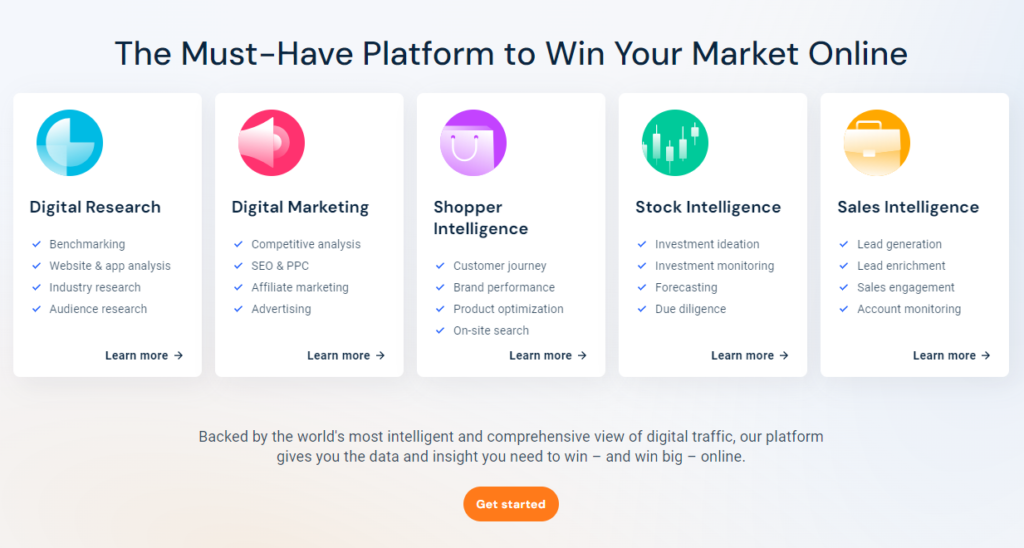
This tool also allows you to track keyword rankings, ad campaigns, and industry trends. While SimilarWeb provides valuable data, its pricing model may be prohibitive for small businesses, with plans starting at $125 per month. However, it does offer a free version with limited capabilities.
2. SEMrush
SEMrush is another powerful competitive benchmarking tool that focuses on SEO and PPC (pay-per-click) advertising. It enables users to conduct keyword research, monitor backlinks, perform site audits, and spy on their competitor’s ads and organic search strategies.
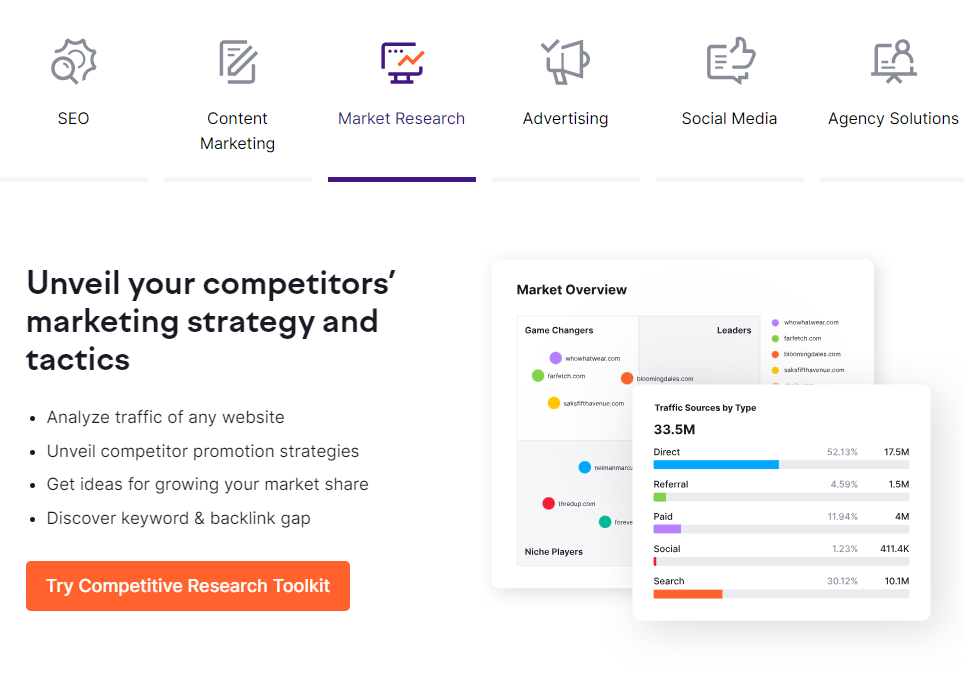
SEMrush offers various plans ranging from $130 to $500 per month, making it more accessible than SimilarWeb. Additionally, SEMrush boasts excellent customer support and user-friendly interfaces.
3. Ahrefs
Ahrefs is a highly regarded competitive benchmarking tool known for its robust backlink analysis feature. Ahrefs crawls billions of web pages daily, allowing users to discover new link opportunities, monitor existing links, and evaluate anchor text distribution. Moreover, Ahrefs helps users assess keyword difficulty, track ranking progress, and explore content gaps between their websites and their competitors.
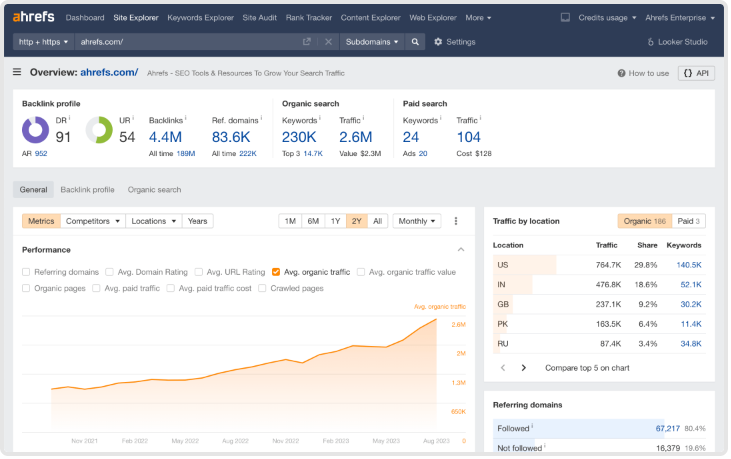
Image Source: Ahrefs
Plans start at $129 per month. Like SEMrush, Ahrefs receives high praise for its intuitive interface and helpful customer service team.
4. SpyFu
SpyFu specializes in competitor keyword tracking, offering insights into both paid and organic keywords. Users can view historical data, estimate click costs, and analyze individual AdWords campaigns. SpyFu also includes features like backlink monitoring, SERP analysis, and domain comparison.

Image Source: SpyFu
At only $39 per month for its basic plan, SpyFu is one of the most affordable options available. Despite its lower price point, SpyFu still delivers reliable performance and responsive customer support.
5. BuzzSumo
BuzzSumo stands out among competitive benchmarking tools due to its focus on social media analytics. By analyzing trending topics, influencers, and viral content, BuzzSumo empowers users to create engaging marketing campaigns tailored to their target audiences. Its advanced filtering system makes identifying potential leads and brand advocates simple.

Image Source: BuzzSumo
Although BuzzSumo is pricier than other platforms ($199-$999+ per month), it caters specifically to marketers seeking detailed social insights.
6. Competitors App
Competitors App is designed explicitly for eCommerce businesses looking to stay informed about their rivals’ product listings, prices, inventory levels, promotions, and reviews. This app integrates seamlessly with major shopping cart systems like Shopify, Magento, and BigCommerce, enabling real-time updates on competitor activities.
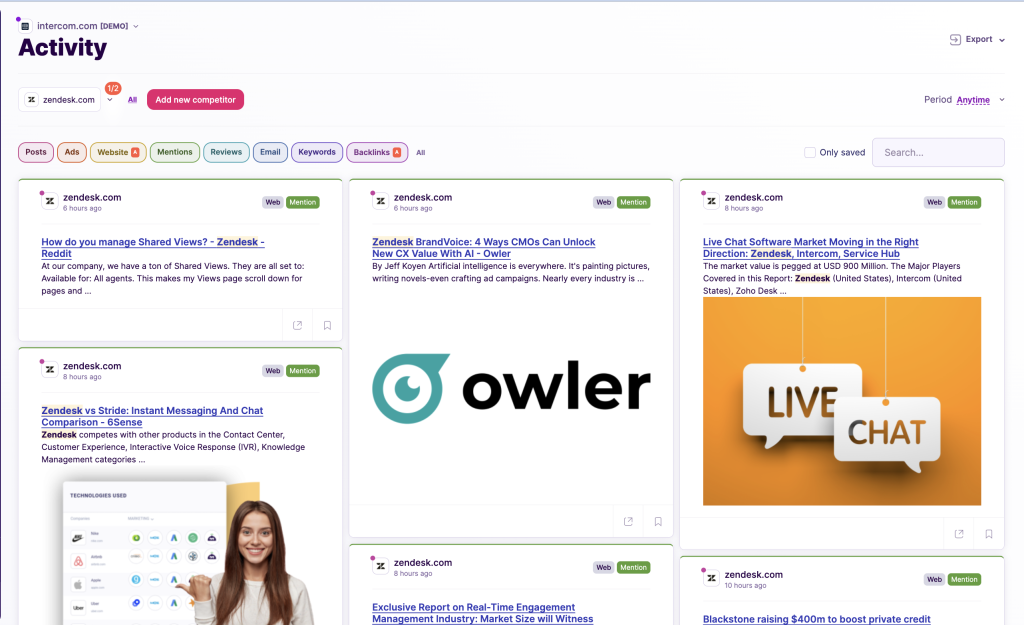
Image Source: Competitors.app
Pricing ranges from $20 to custom prices, depending on the number of competitors monitored. Overall, Competitors App offers exceptional value for money and specialized functionality for online retailers.
7. 42Signals
42Signals is one of the best competitor data analysis tools for e-commerce companies looking to understand their industry and segment better. From data on marketing strategies to product performances to product pricing and attribute data, the platform provides granular insights into competitor activity.
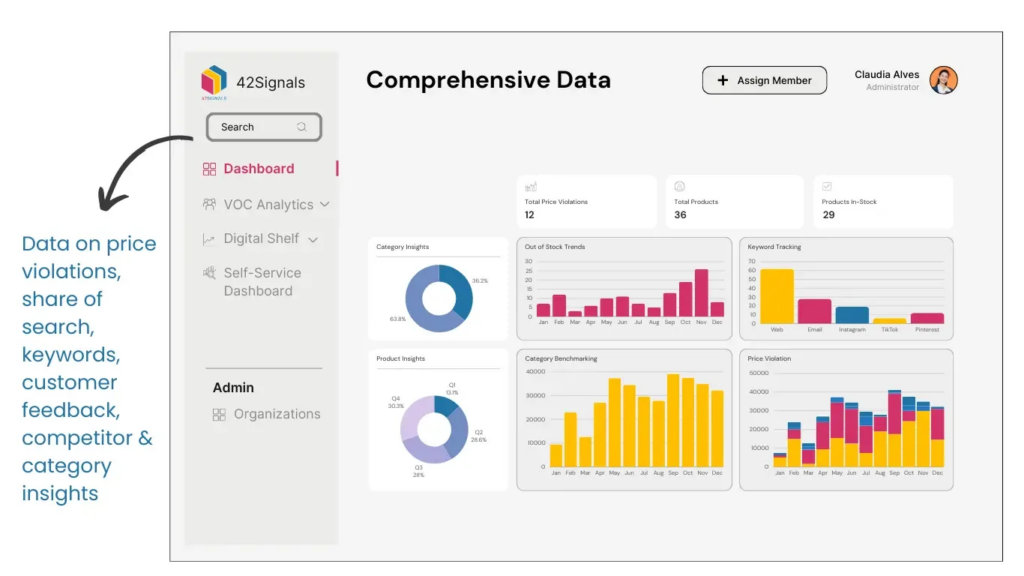
Image Source: 42Signals App
What are the Benefits of Competitive Benchmarking?
- Identifying market trends: By examining data provided by SimilarWeb or SEMrush, companies can pinpoint emerging industry trends and adapt their strategies accordingly. For instance, if a particular topic suddenly gains traction within your niche, creating relevant content around it might help increase brand visibility and attract more visitors to your website.
- Improving SEO efforts: Both SEMrush and Ahrefs provide valuable information regarding keyword usage, backlink profiles, and competitor strategies. Armed with this knowledge, businesses can optimize their websites for better search engine rankings, leading to increased organic traffic and higher conversion rates.
- Enhancing PPC campaigns: SpyFu enables users to scrutinize their competitor’s ad copy, landing pages, and bidding strategies. Analyzing this data can inform decisions when crafting your own PPC campaigns, potentially reducing wasted spend and improving return on investment (ROI).
- Boosting social media engagement: Platforms like BuzzSumo allow brands to gauge which types of content resonate best with their target audience on various social networks. Based on these findings, they can fine-tune their publishing schedule, format preferences, and messaging to maximize reach and engagement.
- Monitoring competitor pricing: Ecommerce businesses employing tools like Competitors App can keep tabs on rival pricing fluctuations, ensuring they remain competitive without compromising profitability. Furthermore, understanding inventory changes and promotional tactics can guide decision-making related to stock management and sales initiatives.
- Uncovering content gaps: Comparing your content library against competitors’ often reveal untapped opportunities for addressing unique pain points or exploring novel angles. Utilizing tools like Ahrefs and BuzzSumo can illuminate such gaps, inspiring fresh ideas and driving innovation.
- Tracking brand reputation: Several competitive benchmarking tools enable companies to monitor mentions, reviews, and sentiment surrounding their brand. Staying abreast of public perception allows organizations to address negative feedback promptly and capitalize on positive word-of-mouth, bolstering overall brand equity.
- Evaluating partnership prospects: When considering collaborations with other companies, evaluating shared interests, complementary strengths, and alignment with strategic goals becomes essential. Examining key metrics via SimilarWeb or SEMrush can shed light on whether partnering would yield mutually beneficial results.
- Fueling growth hacking experiments: Data derived from competitive benchmarking tools can serve as a foundation for launching targeted growth hacking projects aimed at rapidly scaling user acquisition, activation, retention, revenue, and referral. Testing hypotheses grounded in objective insights tend to produce more consistent results than relying solely on gut feelings or conventional wisdom.
- Establishing realistic benchmarks: Lastly, leveraging competitive benchmarking tools helps establish achievable targets for critical KPIs tied to organizational objectives. Regularly measuring performance relative to established baselines facilitates continuous improvement, fostering a culture of excellence throughout the enterprise.
Conclusion
When selecting a competitive benchmarking tool, consider factors such as budget, specific needs, and desired outcomes. Each platform discussed here excels in different areas, so choose wisely based on what matters most to your organization. Whether you prioritize extensive website traffic analysis, cutting-edge SEO techniques, social media insights, or eCommerce intelligence, there’s a solution perfect for you.
Investing time and resources into competitive benchmarking could significantly enhance your overall business strategy, setting you up for long-term success.
Explore how 42Signals’ data-driven insights can optimize your competitive benchmarking efforts. Discover how our eCommerce intelligence enhances your competitive edge. Signup to get started.




